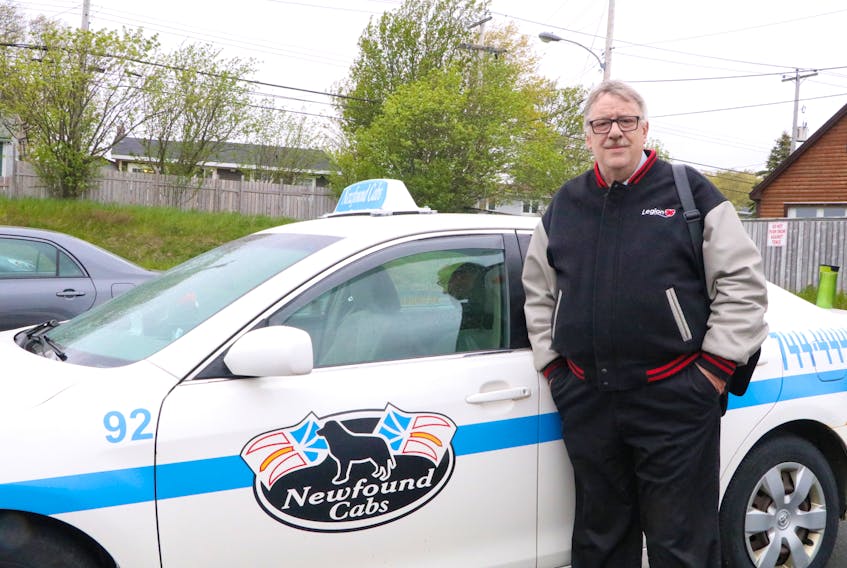Doug McCarthy shakes his head when he says that, as a private owner/operator of a taxi with Newfound Cabs, he pays more for auto insurance than does a person who has been convicted three times for impaired driving.
“In this industry I’m penalized right from the start, regardless of my personal driving record. I and others who have a clean driving record are being discriminated against simply because we are taxi drivers,” he said.
“An owner/operator with over 20 years of clean driving is required to pay more for insurance than an individual who has three convictions for impaired. Who is the greater risk, the taxi driver or the individual who’s already proven that he cannot be trusted with the control of a vehicle?”
McCarthy made a presentation Wednesday before the Public Utilities Board (PUB), which held public hearings over seven days this month in its review of automobile insurance in the province.
The PUB is examining the reasons behind increasing claims costs for private passenger vehicles and taxi operators, and options to reduce these costs, and to examine the impact on rates and implications for claimants of introducing a monetary cap on claims for minor injuries, or continuing with the current deductible of $2,500, or increasing the deductible.
McCarthy said that in September 2017, his taxi insurance premium was $6,965 per year for full coverage. In September of this year he expects it to rise to $8,260 per year.
He said the “skyrocketing” cost of insurance is forcing many taxi owners out of business.
“In the year 2014, the taxi industry in this province had at that time, according to motor vehicle records, 2,165 TX plates in use,” he said. “That’s taxis and limousines.
“As of December 2017, we now have 1,877 TX plates in use. This means that in the past three years 288 vehicles have been removed or just over 13 per cent of the entire fleet. The sole reason for the removal is that the owners could no longer afford to pay the increased insurance rates and still earn a living. This decline will continue so long as the rates continue to increase yearly by double digits.”
McCarthy says the provincial government must realize how important the taxi industry is. He said it’s an essential service that provides transportation in areas of the province where there is no public transit, is the first contact for travellers arriving in the province at airports and drives people home safely who have had too much to drink.
“Where would the tourism or convention industry be without a reliable taxi industry?” he asked. “We are the ones who drive impaired individuals home … so that they are not on the road placing people’s lives in jeopardy.”
McCarthy asked a number of questions during his presentation, including, where do insurance companies get their funding to stay in business if they are losing money?
He also took a swipe at personal-injury lawyers, saying it’s a thriving business for them and they have played a part in higher claims costs that have driven up premiums.
McCarthy also said the taxi industry is not without some fault.
“We as an industry realize that we have a problem with some of the individuals within our business,” he said. “Therefore, in conjunction with the Minister of Service NL, we have been working to improve the requirements for an individual to acquire a Class 4 licence, and the requirement to retain that privilege.
“We, as an industry, are taking steps to improve the quality of our drivers, providing them with additional training, so that they have the necessary skills to provide safe, reliable service to the clients we service.”
He noted that most taxi companies in the province now require that all new applicants have a current driver’s abstract, a record of conduct and vulnerable-sector clearance prior to starting work driving a taxi.
“Newfound Cabs has also implemented a number of required courses that a driver must complete,” he said. “Newfound was the first company to introduce driver ID placards on the dash so the clients would know who they are being driven by.
“Newfound has also installed GPS tracking units in their cars so they monitor the vehicle’s speed, braking, starting and turning, so as to determine the conduct of the driver while on the road. Newfound has already severed the employment of several drivers for speeding because of this new system.
“Others are also following suit. We are trying to be as proactive as we can, while still providing the service to our clients. Just like everything else, it will take time to improve. In order for this to happen, we require relief on our insurance rates. The system has to change. We need insurance based on our driving record, not on statistical data compiled by the insurance company.”









